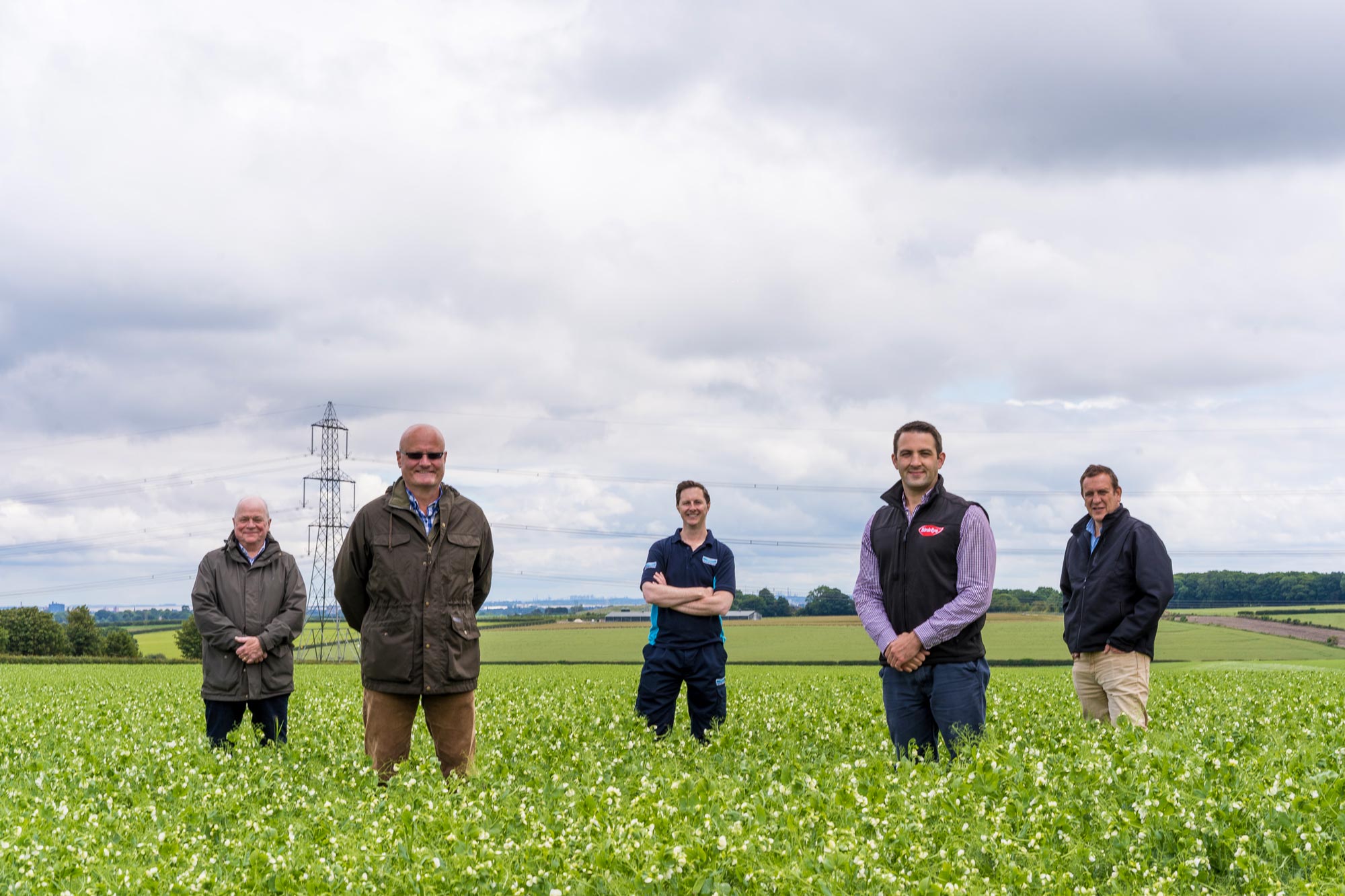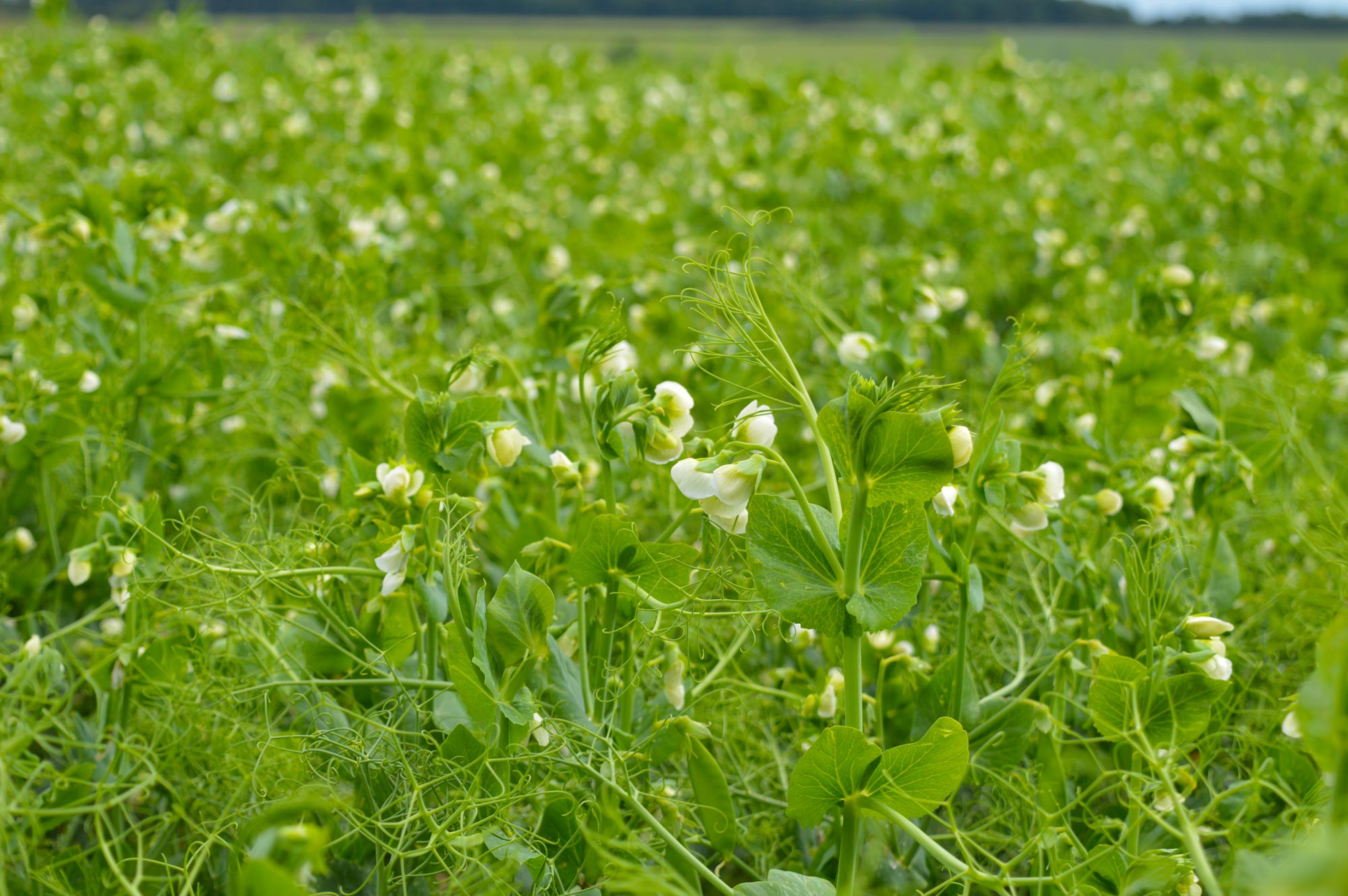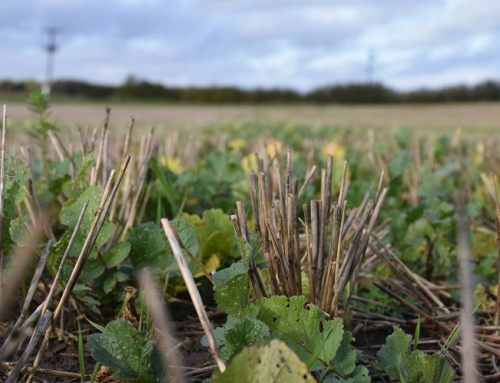
A LANDMARK, farm-based project that could help return atmospheric CO2 to pre-industrial levels has been launched in East Yorkshire.
The Sustainable Landscapes Humber project is a collaboration between Yorkshire Water, Birds Eye, and supply chain consultancy Future Food Solutions, with other brands joining in as different commodities are grown in rotation. Research expertise is being provided by the University of Hull, with support from Teesside University.
However, at its core are more than 40 farmers from across East Yorkshire and North Lincolnshire, based in the Yorkshire Water catchment area, who grow peas for Nomad Foods-owned Birds Eye.
The project involves these farmers growing cover crops in the window between harvesting peas and sowing their next food crop and also in the over-winter period before next year’s peas are drilled.
The cover crops – christened pop up rainforests by Future Food Solutions – are made up of a diverse range of plant species chosen for their ability to capture huge amounts of CO2 from the atmosphere, restore soil organic matter, and significantly reduce flooding.
Andrew Walker, Asset Strategy Manager for Yorkshire Water, said the Sustainable Landscapes Humber Project laid the foundations for addressing some of the most urgent problems the world is currently facing.
He said: “Growing cover crops to increase soil organic matter is one of the most effective way of combatting the major environmental issues we face today.
“In just seven weeks, they generate enough carbon-sequestering organic material to make a significant dent in atmospheric CO2.”
He added that the Sustainable Landscapes Humber Project could also play a major role in the reduction of flooding in Hull – a notorious problem for the city as much of it lies below the high-tide line.

Paul Rhodes, director of Future Food Solutions, added that growing cover crops also has significant implications for soil health and the wider environment.
“The plants’ root structure holds the topsoil in place reducing erosion, and the increase in organic matter means less farm inputs are required, enabling farmers to grow food more efficiently and profitably,” he said.
Fellow Future Food Solutions director, Steve Cann, described the Sustainable Landscapes Humber Project as a great example of collaboration between utility partners, the supply chain and farmers, adding: “Because of the unique nature of the Birds Eye supply chain and interactions with the growers, peas can be the catalyst for change; the same farmers will grow wheat, barley and oil seed rape for other supply chain partners so the potential to upscale the project is huge.”
James Young, Agriculture and Veg Sourcing Director, Nomad Foods said: “We have a rich history in the Humber catchment area, having worked with local farmers for over 60 years growing highest quality peas for our consumers.
“Sustainable agriculture is at the heart of our company purpose at Nomad and has always been at the core of the partnership with these farmers.
“Therefore, we’re very excited to be involved in this project and the opportunity to work collaboratively with partners on finding solutions to issues such as climate change and flooding, as well as improving soil health for future crop production.”
Professor Dan Parsons, Director of the Energy and Environment Institute at the University of Hull, said: “We are delighted that this project is underway, with a range of excellent partners brought together by Future Food Solutions and linking to the THYME programme, a £5m project funded by the Research England Connecting Capabilities Fund.
“The government’s 25-year environment plan speaks of maximising natural capital and working with nature in our use of landscapes.
“The Sustainable Landscapes Humber Project is an exemplar of how we can optimise landscape use to amplify ecosystem services, such as biodiversity and reducing flood risk, whilst also maintaining or improving agricultural crop values into the future.
“The innovative practice that will be demonstrated by the project, through digitalisation and high-resolution monitoring and modelling, holds great promise in shaping our use, management and interactions with landscapes into the future.”
Main Image: (L-R) Steve Cann, Director, Future Food Solutions; Andrew Walker, Asset Strategy Manager, Yorkshire Water; Lee Pitcher, Head of Partnerships, Yorkshire Water; James Hopwood, Agriculture Manager UK, Birds Eye, and; Paul Rhodes, Director, Future Food Solutions, stood among Birds Eye’s peas on the rolling East Yorkshire Wolds.




